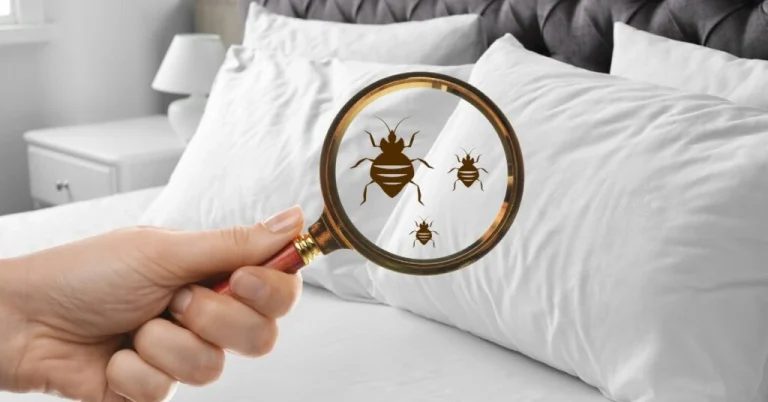Traveling can be an exciting adventure, but it also comes with hidden risks — including bed bugs. These small, elusive pests are expert hitchhikers, capable of attaching to luggage, clothing, and personal items to travel from one location to another. Even a short stay in a hotel, hostel, or shared accommodation can result in a bed bug infestation if proper precautions are not taken.
Understanding how to prevent bed bugs while traveling is essential for frequent travelers, business professionals, and anyone staying in temporary lodging. With awareness, preparation, and a few key habits, you can dramatically reduce the risk of bringing these pests home.
1. Research Accommodations Before Booking
Before booking a hotel, motel, or rental property, take the time to research the accommodation’s reputation. Check online reviews and forums for mentions of bed bugs or pest control issues.
Look for:
- Reports of bed bug sightings
- Guest complaints about bites or infestations
- The property’s pest control policies
Choosing accommodations with a strong record of cleanliness and proactive pest management significantly reduces the likelihood of encountering bed bugs.
2. Inspect Your Room Upon Arrival
Even highly rated hotels can occasionally have bed bugs. Conduct a careful inspection as soon as you enter your room:
- Pull back the bedspread and check mattress seams, pillows, and box springs.
- Examine the headboard, nightstands, and furniture joints.
- Look behind picture frames, lamps, and wall decorations.
- Use a flashlight to inspect cracks and crevices where bed bugs may hide.
If you find signs of bed bugs, request a different room, ideally on a separate floor or away from the suspected unit.
3. Keep Luggage Off the Floor and Bed
Bed bugs can easily crawl into suitcases, especially if placed on beds, carpets, or upholstered surfaces. Minimize risk by:
- Using a luggage rack or hard surface to store bags.
- Keeping clothing in sealed plastic bags within your suitcase.
- Avoiding open suitcases left on the floor.
Specialized bed bug–proof luggage covers or liners can provide additional protection.
4. Pack Strategically
How you pack your belongings can influence exposure to bed bugs. Consider the following tips:
- Roll clothes tightly and store them in sealable bags.
- Keep shoes in separate compartments or plastic bags.
- Avoid fabric luggage that allows bugs to hide in seams.
Traveling light and organized makes it easier to inspect your belongings and reduces potential hiding spots.
5. Monitor Public Spaces
Bed bugs are not limited to hotel rooms. Airports, buses, trains, movie theaters, and gyms can also harbor these pests. To reduce the risk:
- Keep bags on laps or hard surfaces rather than the floor.
- Avoid placing luggage on upholstered seats.
- Inspect items thoroughly after returning home.
Awareness in transit is just as important as inspecting accommodations.
6. Laundry Precautions During Travel
Frequent travelers should take precautions with clothing:
- Wash clothes in hot water (120°F or higher) whenever possible.
- Dry on high heat for at least 30 minutes to kill potential bed bugs and eggs.
- Store worn clothes in sealed bags until laundering.
These simple habits significantly reduce the risk of bringing bed bugs home.
7. Unpack Carefully
Upon returning home, take steps to prevent bed bugs from spreading:
- Inspect luggage before bringing it into bedrooms.
- Unpack clothes directly into the washer or sealed bags.
- Vacuum suitcases and use a steamer on seams if needed.
- Store luggage away from sleeping areas until you are sure it is pest-free.
Careful unpacking is critical for preventing an infestation in your home.
8. Know the Early Warning Signs
Even with preventive measures, bed bugs can occasionally find their way home. Watch for:
- Red, itchy bites on exposed skin
- Rust-colored stains on bedding or furniture
- Tiny white eggs or shed skins in hidden areas
- A musty or sweet odor
Early detection ensures that any infestation can be treated promptly, minimizing the risk of it spreading.
9. Seek Professional Help if Necessary
If you suspect bed bugs despite precautions, professional intervention is the safest solution. Experienced technicians can detect hidden infestations and implement effective treatment plans. For travelers returning home with signs of bed bugs, services like Hot Bugz can provide professional inspections and eradication solutions, ensuring your home remains free from these persistent pests.
Final Thoughts
Traveling doesn’t have to be a source of bed bug stress. By researching accommodations, inspecting rooms, storing luggage properly, monitoring public spaces, and practicing safe unpacking habits, you can significantly reduce your risk. Early detection combined with professional treatment if needed ensures that your home remains a safe, comfortable environment. Being vigilant and proactive is the best defense against these stealthy pests, allowing you to enjoy your travels worry-free.

